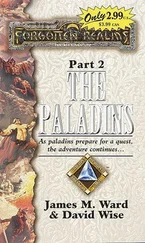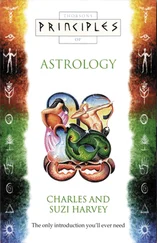Joseph Harvey Ward - The Hand of Providence
Здесь есть возможность читать онлайн «Joseph Harvey Ward - The Hand of Providence» — ознакомительный отрывок электронной книги совершенно бесплатно, а после прочтения отрывка купить полную версию. В некоторых случаях можно слушать аудио, скачать через торрент в формате fb2 и присутствует краткое содержание. Жанр: foreign_prose, foreign_religion, Философия, foreign_psychology, foreign_antique, на английском языке. Описание произведения, (предисловие) а так же отзывы посетителей доступны на портале библиотеки ЛибКат.
- Название:The Hand of Providence
- Автор:
- Жанр:
- Год:неизвестен
- ISBN:нет данных
- Рейтинг книги:3 / 5. Голосов: 1
-
Избранное:Добавить в избранное
- Отзывы:
-
Ваша оценка:
- 60
- 1
- 2
- 3
- 4
- 5
The Hand of Providence: краткое содержание, описание и аннотация
Предлагаем к чтению аннотацию, описание, краткое содержание или предисловие (зависит от того, что написал сам автор книги «The Hand of Providence»). Если вы не нашли необходимую информацию о книге — напишите в комментариях, мы постараемся отыскать её.
The Hand of Providence — читать онлайн ознакомительный отрывок
Ниже представлен текст книги, разбитый по страницам. Система сохранения места последней прочитанной страницы, позволяет с удобством читать онлайн бесплатно книгу «The Hand of Providence», без необходимости каждый раз заново искать на чём Вы остановились. Поставьте закладку, и сможете в любой момент перейти на страницу, на которой закончили чтение.
Интервал:
Закладка:
J. H. Ward
The Hand of Providence. As Shown in the History of Nations and Individuals, From the Great Apostasy to the Restoration of the Gospel
CHAPTER I
THE DESTRUCTION OF JERUSALEM AND APOSTASY OF THE EARLY CHURCH
INJUSTICE OF ROMAN GOVERNORS—NERO EMPEROR—VESPASIAN AND TITUS SENT TO JUDEA—FORTIFICATIONS OF JERUSALEM—TITUS OFFERS TERMS OF PEACE—HORRORS OF THE SIEGE—WOMEN DEVOUR THEIR OWN CHILDREN—TEMPLE BURNED—CITY DESTROYED—DISPERSION OF THE JEWS—UNIVERSAL APOSTASY—PRIESTHOOD NO MORE—IDEAS OF GOD PERVERTED—WORSHIP CORRUPTED WITH HEATHEN RITES—PERSECUTION OF CHRISTIANS—EMPEROR CONSTANTINE—RISE OF MONASTIC ORDER.
According to the best records that have come down to us, the last book of the New Testament (commonly called the Apocalypse of St. John) was written about sixty years after the ascension of our Savior.
At that time the gospel of Jesus Christ had been preached in all the principal cities and countries of the known world. Numerous branches of the primitive church had been planted in Palestine, Syria, Egypt, Asia Minor, Greece and Italy.
In the meantime the awful doom which the Savior predicted against Jerusalem had been literally fulfilled. Shortly after the crucifixion and ascension of the Savior, Judea became the theatre of many cruelties and oppressions arising from contentions between the Jewish priests, the depredations of numerous bands of robbers, which infested the country; but more than all from the injustice and avarice of the Roman governors.
The last of these governors was Gessius Floras, whom Josephus represents as a monster in wickedness and cruelty, and whom the Jews regarded rather as a bloody executioner, sent to torture, than as a magistrate to govern them.
During the government of Felix, his predecessor, a dispute having arisen between the Jews and Syrians about the city of Caesarea, their respective claims were referred to the emperor, Nero, at Rome. The decision was in favor of the Syrians, and the Jews immediately took up arms to avenge their cause.
In this state of things, Nero gave orders to Vespasian to march into Judea with a powerful army. Accordingly, Vespasian, accompanied by his son Titus, marched into Palestine at the head of 60,000 well-disciplined troops. While Vespasian was thus preparing more effectually to curb the still unbroken spirit of the Jews, intelligence arrived of the death of the emperor and his own election to the throne. Departing therefore for Rome he left the best of his troops with his son, ordering him to besiege and utterly destroy Jerusalem.
Titus lost no time in carrying into effect his father's injunction. Jerusalem was strongly fortified both by nature and art. Three walls surrounded it which were considered impregnable; besides which it had numerous towers outside of the walls, lofty, firm and strong. The circumference was nearly four miles.
Desirous of saving the city, Titus repeatedly sent offers of peace to the inhabitants; but they were indignantly rejected. At length finding all efforts at treaty ineffectual, he entered upon the siege determined not to leave it until he had razed the city to its foundation.
The internal state of the city soon became horrible. The inhabitants being divided in their counsels fought with one another, and the streets were often deluged with blood shed by the hands of kindred. In the meantime famine spread its horrors abroad, and pestilence its ravages. Thousands died daily and were carried out of the gates to be buried at the public expense; until being unable to hurry them to the grave the wretched victims were thrown into houses as fast as they fell, and there shut up.
During the prevalence of the famine, the house of a certain woman by the name of Miriam was repeatedly plundered of such provisions as she had been able to procure. So extreme did her suffering become, that she entreated those around her, to put an end to her miserable existence. At length frantic with fury and despair she snatched her infant from her bosom, killed and cooked it; and having satiated her present hunger, concealed the rest. The smell of food soon drew the voracious human tigers to her house; they threatened her with tortures; she hid her provisions from them. Being thus compelled she set before them the relics of her mangled babe. At the sight of this horrid spectacle, inhuman as they were, they stood aghast, petrified with horror, and at length rushed precipitately from the house.
When the report of this spread through the city, the consternation was universal and inexpressible. The people now, for the first time, began to think themselves forsaken of God. In the mind of Titus the recital awakened both horror and indignation, and he resolved to push the siege with still greater vigor, aiming particularly to obtain possession of the temple. The preservation of this noble edifice was strongly desired by him; but one of the Roman soldiers being exasperated by the Jews, or, as Josephus says, "pushed on by the hand of Providence," seized a blazing firebrand, and getting on his comrades' shoulders, threw it through a window, and soon the whole north side was in a flame. Titus immediately gave order to extinguish the fire; but the enraged soldiers, bent on destroying the city and all it contained, either did not hear or did not regard him. The flames continued to spread until this consecrated edifice, the glory of the nation, became one mingled heap of ruins. Then followed a terrible massacre in which thousands perished, some in the flames and others by the sword of the enemy. At length the city was abandoned to the fury of the soldiers. It is said that nearly one million five hundred thousand persons perished in the siege.
The conquest of the city being achieved, Titus proceeded to demolish its noble structures, its fortifications, palaces and walls. So literally were the predictions of the Savior fulfilled respecting its destruction that not one stone was left upon another that was not thrown down.
From that day the Jews have been dispersed through the world, despised and hated, persecuted and yet upheld—lost as it were among the nations, and yet distinct—they live as the monuments of the truth of God.
While the apostles lived the churches planted by them continued to exist with more or less of spiritual life.
But the spirit of apostasy was already at work. In some places pagan rites and ceremonies had perverted the worship of the true God and but few could be found who remained pure amid the corruptions of the age or undaunted by the trials and persecutions that surrounded them on every side.
So universal was this apostasy that only seven churches throughout Asia, Africa and Europe were considered worthy of being either reproved or blessed by the voice of revelation. ( See Revelations 2nd and 3rd chapters .)
The whole eastern continent of which we have authentic history was at that period under the control of Rome, and paganism was the religion of the empire. Thus the whole power of the realm was brought to bear against the infant church.
Pagan priests excited the populace to frenzy, and royal decrees delivered the saints to the most terrible tortures and death.
In a few years the apostolic organization and priesthood were no more. A few glimmerings of spiritual light remained for a short time, among those who had taken refuge in the catacombs or subterranean vaults of Rome, or had fled to the wilds of the Libyan desert. But even this light was soon extinguished, and then fell that mental, moral, and spiritual night from which mankind are only now slowly emerging.
But false religion could never satisfy the cravings of the immortal soul.
Paganism presented only a cheerless prospect. It gave itself no concern for the lowly and unfortunate, limited the hopes and destiny of man to this present life, and taught him that temporal prosperity might be selfishly gained at any cost to others in property and suffering. For example, Rome, for many ages had enriched herself with the wealth of conquered nations, and impoverished them that her sons and daughters might live in luxury and grandeur. Yet throughout her vast dominions there were no institutions of benevolence; no hospitals for the sick, no asylums for the afflicted or unfortunate. The pleasant pastimes of her populace were to witness scenes of cruelty; and the most refined ladies of that period eagerly thronged the amphitheatres to view the agonies of captives from distant tribes or early Christian martyrs as they were thrown to famished and enraged wild beasts in the public arena. Many of the early Christians were thus put to death in the Coliseum, the ruins of which are shown in the engraving.
Читать дальшеИнтервал:
Закладка:
Похожие книги на «The Hand of Providence»
Представляем Вашему вниманию похожие книги на «The Hand of Providence» списком для выбора. Мы отобрали схожую по названию и смыслу литературу в надежде предоставить читателям больше вариантов отыскать новые, интересные, ещё непрочитанные произведения.
Обсуждение, отзывы о книге «The Hand of Providence» и просто собственные мнения читателей. Оставьте ваши комментарии, напишите, что Вы думаете о произведении, его смысле или главных героях. Укажите что конкретно понравилось, а что нет, и почему Вы так считаете.












